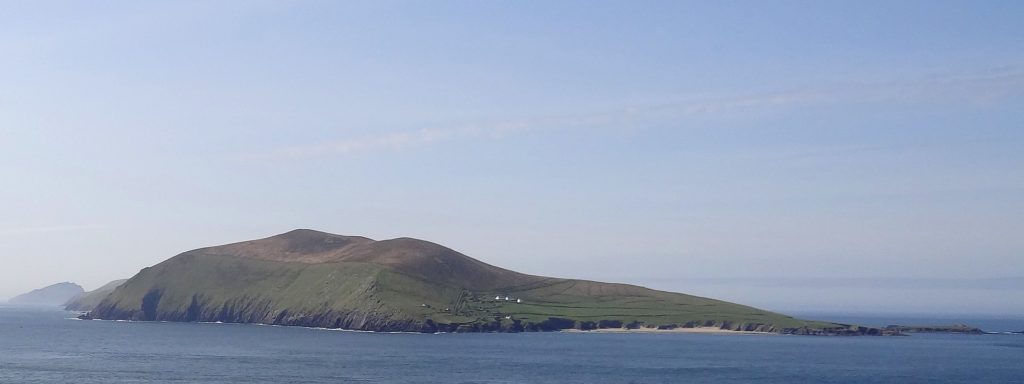LIVING on a scenic, remote island is only for multi-millionaires, shipwreck survivors and kids with too much imagination, right?
Wrong!
In Ireland, remote and scenic often go hand-in-hand, and with that in mind, it doesn't get much better than Great Blasket Island.
Literally a stone's throw from the coast of Co. Kerry, tucked away in the very corner of the country, Great Blasket Island is literally as far West as Ireland stretches.
 Great Blasket Island
Great Blasket IslandThere's very little on the island aside from some lovely seabirds, and the occasional sunbathing seal, but it's become something of a tourist attraction, with a ferry taking a small number of people to the gorgeous lump for a good look around.
Posting on Great Blasket Island's official twitter page, apparently two lucky sods are needed to manage the Island's accommodation and coffee shop from April through October 2020.
The area is a walker's paradise, with stunning views of the surrounding Kerry coastline, especially when the sun is shining. But even in the mist and the rain, Blasket can still provide some of the best natural scenes in the country.
A ferry takes a number of visitors to and from the island most days, and you'll be charged with keeping them entertained and refreshed during their short stay.
** Job Vacancy **
A unique position required - looking for long term management of Island Accommodation and Coffee Shop. Couple or two friends.
1st April 2020 - October 2020 accommodation and food provided.
Email Alice on [email protected] for more information pic.twitter.com/RJFfrr4QDH— Great Blasket Island (@gbisland) January 10, 2020
You'll be provided with accommodation, food and more gorgeous morning sunrises than your eyes will have ever witnessed.
You've got the town of Dingle a short boat ride away, which has more than hearty Irish food, music and people than you'll ever need, and you might even be lucky enough to spot a whale or two from your bedroom window, who knows?
The island, which is only around 5km squared, was abandoned back in the 1950s after the population dropped to below 20, and the isolated islanders - who barely ever travelled to the mainland (just 2km away) - struggled to sustain themselves there.
Fears of not being able to travel and from the island easily in an emergency forced the last remaining inhabitants to the mainland in 1954, and ever since it's remained something fairly isolated, albeit for a number of tourists stopping by.
So remind me, what are you waiting for? What are you still doing reading this? Get going!

